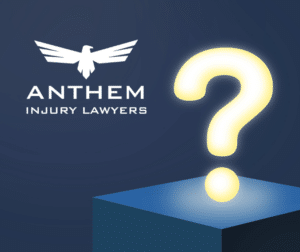Check Your Knowledge of Car Accident Legal Terms! Do you know the definitions of some common legal terms associated with car accident cases? Anthem Injury Lawyers wants everyone to be informed about the law and their rights so they can make good decisions if they get in a car accident. See if you know the terms below and check your mastery of Nevada legal lingo.

Legal Lingo with Anthem Injury Lawyers!
-
Negligence
Failure to exercise the standard of care that a reasonable person would in a similar situation, leading to harm or injury to another person. In car accidents, this often refers to reckless or careless driving.
Did you know? Nevada is a fault state, meaning the driver found negligent in causing a car accident is financially responsible for the damages. Negligence is determined by proving:
- Duty of Care: The driver owed a duty to others.
- Breach of Duty: The driver violated that duty (e.g., by speeding).
- Causation: The breach directly caused the accident.
- Damages: The victim suffered losses as a result.
-
Liability
Liability is the word to describe the legal responsibility for causing harm or damage. In car accident cases, determining liability establishes who is at fault for the accident.
Did you know? There are many kinds of evidence that can help prove who is at fault in a car accident. Some of them are:
- Video of the accident (sometimes businesses have video)
- Eyewitness testimony
- Hospital or other medical records
- Expert testimony by doctors, forensic experts, accident reconstruction experts, etc.
- Texts, voicemails, emails, and other recorded communications that indicate time/place/intent
- GPS records
- Maintenance records for vehicles involved
-
Comparative Negligence
This is a legal doctrine where the fault is divided among the parties involved in an accident based on their level of responsibility. This can affect the damages awarded.
Did you know? Nevada follows a modified comparative negligence rule (51% bar rule).
- If you are 50% or less at fault, you can recover damages, but your compensation will be reduced by your percentage of fault.
- If you are 51% or more at fault, you cannot recover damages.
-
Damages
Damages are part of the negligence factor in a car accident, and it is an important part to prove. Damages are the compensation claimed or awarded for injury, loss, or damage resulting from an accident. In Nevada, these can be:
- Economic Damages: This covers financial losses such as medical bills, lost wages, and property damage.
- Non-Economic Damages: These compensate for pain, suffering, or emotional distress.
- Punitive Damages: This is intended to punish the at-fault party for egregious or reckless behavior. This can sometimes be applied in extreme situations including accidents caused by drivers Driving Under the Influence (DUI).
-
Personal Injury Protection (PIP)
PIP is insurance coverage that pays for medical expenses and sometimes lost wages, regardless of who was at fault in the accident.
Did you know? Nevada does not require PIP coverage, as it is a fault-based state. Instead, drivers must carry liability insurance for bodily injury and property damage.
-
Statute of Limitations
The statute of limitations, sometimes referred to as the “SOL” is the time limit within which a legal claim must be filed. This varies by state and type of claim.
Did you know? In Nevada, the statute of limitations for car accident cases is:
- Personal Injury: 2 years from the date of the accident (NRS 11.190(4)(e)).
- Property Damage: 3 years from the date of the accident.
-
Settlement
A settlement is an agreement between parties to resolve a dispute without going to trial. Often involves the at-fault party or their insurer paying compensation.
Did you know? Settlements are common in Nevada car accident cases and often occur before trial. Insurance companies must act in good faith under Nevada law (NRS 686A.310).
-
Tort
A tort is not a baked good! It is a wrongful act or infringement of a right leading to civil legal liability. Car accident claims typically fall under tort law.
Did you know? Nevada car accident cases generally fall under tort law, requiring proof of negligence to recover damages.
-
Fault
Fault is the determination of who is responsible for causing the accident. States may follow different systems for assigning fault:
Fault-Based System: Requires the at-fault driver to pay for damages.
No-Fault System: Each party’s insurance pays for their own damages, regardless of fault.
Did you know? Nevada’s fault-based system means the at-fault driver (and their insurer) pays for damages. Nevada’s Department of Motor Vehicles (DMV) may suspend a driver’s license if they fail to carry sufficient liability insurance.
-
Policy Limits
Policy limits refers to the maximum amount an insurance policy will pay for a covered claim.
Did you know? Nevada requires minimum auto insurance coverage (NRS 485.185):
- $25,000 per person for bodily injury.
- $50,000 per accident for bodily injury.
- $20,000 for property damage.
Damages above these limits must be recovered from the at-fault driver personally unless they have higher insurance coverage.
-
Lien
A lien on a car accident case is a legal claim placed on a settlement or judgment awarded to the injured party. This lien is typically used to ensure that certain parties (such as medical providers, insurance companies, or attorneys) are paid for services or expenses related to the case.
Did you know? Common types of liens in Nevada car accident cases include:
- Medical Liens: Claims by healthcare providers for unpaid medical treatment. Nevada Revised Statutes (NRS 108.590–108.660) govern the filing and enforcement of medical liens.
- Attorney’s Liens: Claims by your attorney for unpaid legal fees or costs.
- Insurance Liens: Reimbursement claims by health or auto insurance companies that covered accident-related expenses.
-
Mediation
Mediation is a method of resolving disputes outside of court with the help of a neutral third party.
Did you know? Nevada courts may require mediation for personal injury disputes, including car accidents, to resolve cases without a trial. Mediation is particularly common in Las Vegas and Clark County.
If you are in an accident and it is not your fault, your best bet is to call Anthem Injury Lawyers so we can help guide you through the process. We understand how Nevada-specific laws might apply to your case and how to maximize your compensation. Anthem Injury Lawyers is your local car accident law firm, and we drive results for car accident victims. Call us or click to submit your case details today!
Last updated Friday, December 6th, 2024






